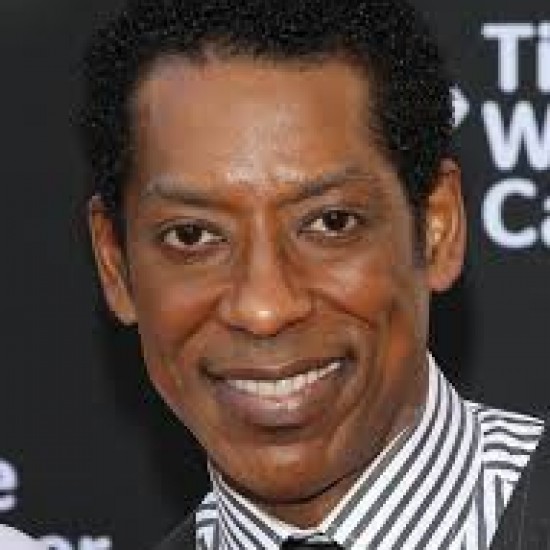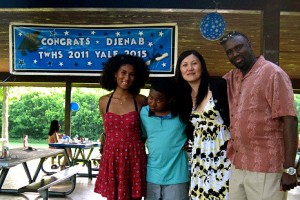Do you binge watch shows and movies online? We do! We found these 6 programs on Netflix that feature mixed roots discussions. Check them out, critically discuss them with others, and learn more! We have provided some questions to consider while watching each one, as well as further reading/resources to keep you thinking and critically looking at mixed roots stories!
We are just getting started with our Netflix recommendations, and we’d love your contributions. What films/TV series have you seen that are relevant? What critical questions can we explore when/after watching them? What mixed identity groups aren’t represented here? Send us an email to info@mixedrootsstories.org.
Trevor Noah: African American
From Trevor Noah:
Trevor Noah brings to film his unique brand of observational humor born of his mixed-race experience under the South African apartheid system. In his most recent stand-up special Trevor weaves together compelling stories with wicked smart observations on the inanity of the racial construct in the United States. The theme of Trevor’s presentation is his journey to America, because he believes he can be fully black here. A clip from Gabriel Iglesias StandUp Revolution:
Mixed Roots Stories Questions to consider while watching:
1) Can humor be an effective storytelling tool for change, especially on matters of race, culture and ethnicity?
2) As you watch Trevor Noah: African American, do you think his point-of-view effectively challenges our racial assumptions?
3) How does idea of mixed/blackness transfer between countries?
4) What does it mean to be “fully black?”
For Further reading/discussion:
Nancy Goldman makes an argument in her paper that humor can be a powerful tool for social change – Comedy and Democracy: The Role of Humor in Social Justice.
The Fosters
From abcfamily.go.com/shows/the-fosters:
The Fosters is a one-hour drama about a multi-ethnic family mix of foster and biological kids being raised by two moms. Stef and her partner Lina have built a close-knit , loving family with Stef’s biological son from a previous marriage, Brandon, and their adopted twins Mariana and Jesus. But how will things change when they meet troubled teen Callie and her little brother Jude?
Mixed Roots Stories Questions to consider while watching:
1) What responsibilities do parents raising kids from different cultures than themselves have in teaching their children about those cultures?
2) Lina identifies as biracial – how does this affect her relationship with her partner, Stef, and her children? Do the conversations she has with her African American mother surprise you, or not? Why?
For Further reading/discussion:
Lisa Marie Rollins is a TRA (TransRacial Adoption) Activist. Her blog, poetry and live performance provide lots of insight into the TRA experience. Learn more here: https://birthproject.wordpress.com/
The Loving Story
From lovingfilm.com:
The Loving Story, a documentary film, tells the story of Richard and Mildred Loving to examine the drama, the history, and the current state of interracial marriage and tolerance in the United States.
Mixed Roots Stories Questions to consider while watching:
1) What do you think were the most compelling arguments made by the Loving’s legal team to persuade the Court to rule in their favor?
2) What are some of the other Supreme Court decisions that have had a strong impact on the mixed community?
For Further reading/discussion:
For a more in-depth analysis on Loving v. Virginia and the people involved, see Race, Sex and the Freedom to Marry by Peter Wallenstein (mixedracestudies.org).
Parenthood
NBC recently aired the final season (season 6) of Parenthood. You can catch up/re-watch the first 5 seasons on Netflix. “Parenthood bravely and delicately take on the complexities of family life leaving viewers full of emotion after every episode like all good comedy/drama stories should! In addition to other major topics (cancer, post traumatic stress disorder and more), this series follows an interracial marriage and their child, the process of a transracial adoption and has explored an interracial teenage dating situation.” (https://mixedrootsstories.com/parenthood/)
A few key seasons/episodes:
Season 2 – Crosby and Jasmine (an interracial couple) are trying to figure out how to raise their child and if they are going to work on their relationship or continue to be separated. Addie begins dating Alex, and her parents begin to question the relationship, pushing her to move in with her grandparents. But are they questioning it because he is a different race or because he has a history of substance abuse?
Season 3 – Crosby and Jasmine work out their differences. Julia and Joel interracially adopt a son.
Season 4 – Crosby and Jasmine have a discussion with their son about race (Episode 4). Julia and Joel take on the challenge of raising their adopted son.
Season 5 – Crosby and Jasmine expand their family with a new baby girl. Jasmine’s mother has ideas of how religion should play a role in the families life.
Mixed Roots Stories Questions to consider while watching:
1) If your child brings home a partner with a mixed background (different race, culture, religion, gender orientation, country of origin, etc.) than what you expected, would you be concerned? Why? Would you voice your concern? How?
2) In Season 4 Episode 4 Crosby realizes there are situations his mixed race son will have to deal with that he won’t be able to protect his son from. How would you or do you answer these/similar questions?
For Further Reading/Discussion:
Raising Biracial Children by Kerry Ann Rockquemore & Tracey Laszloffy, takes on identity development with mixed-race individuals within a historical context and creates a framework to assist parents, educators, social workers, counselors and anyone who works with multiracial individuals.
Donna Jackson Nakazawa wrote Does Anybody Else Look Like Me: A Parent’s Guide to Raising Multiracial Children out of frustration in a bookstore, when she was unable to find a book that provided guidance on how to address the situations she was facing in her mixed roots family.
The appendix of both books have lists of useful resources!
Rabbit Proof Fence
Set in 1930, western Australia, Rabbit Proof Fence tells the true-life story of two “half-caste” girls who were taken from their families, by the government, and placed in a camp where they are trained to be servants for white families. The hope is for these children to end up marrying white Australian men so their aboriginal blood can be bred out. The girls escape and take off on a journey to find their family.
Mixed Roots Stories Questions to consider:
1) The United States is not the only country that has had a history of hiding unspeakable events around race/color differences. What value, if any comes, from being aware of a global mixed roots history?
2) In what ways do institutions continue to support and enforce the separation of different people?
For Further Reading/Discussion:
“My Place” by Sally Morgan
“Daughter Dies With Her Story Still Incomplete”
Black in Latin America: with Henry Louis Gates, Jr.
In this PBS 4 episode series, “Prof. Henry Louis Gates Jr. Discusses the massive influence of African ancestry on the history and culture of Latin America and Caribbean.” He goes to: Mexico, Peru, Brazil, Cuba, Haiti, and the Dominican Republic.
Mixed Roots Stories Questions to consider:
1) As Gates interviews each country, how does his North American views of “Black” influence his questions, interactions, and expectations on what answers he is looking for in South America?
2) Both North and South America have a history of slavery with “Black” or African people. How are these histories similar and/or different? What lessons can be gleaned from both continents mixed roots histories?
For Further Reading/Discussion:
“Black In Latin America” by Henry Louis Gate Jr. http://www.mixedracestudies.org/wordpress/?p=31565
“Latining America: Black-Brown Passages and the Coloring of Latino/a Studies by Claudia Milian
http://www.mixedracestudies.org/wordpress/?p=25463




